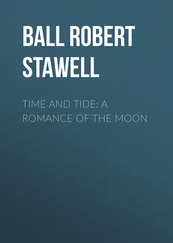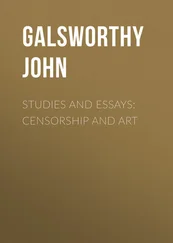John Ruskin - Time and Tide by Weare and Tyne
Здесь есть возможность читать онлайн «John Ruskin - Time and Tide by Weare and Tyne» — ознакомительный отрывок электронной книги совершенно бесплатно, а после прочтения отрывка купить полную версию. В некоторых случаях можно слушать аудио, скачать через торрент в формате fb2 и присутствует краткое содержание. Жанр: foreign_prose, literature_19, foreign_antique, на английском языке. Описание произведения, (предисловие) а так же отзывы посетителей доступны на портале библиотеки ЛибКат.
- Название:Time and Tide by Weare and Tyne
- Автор:
- Жанр:
- Год:неизвестен
- ISBN:нет данных
- Рейтинг книги:4 / 5. Голосов: 1
-
Избранное:Добавить в избранное
- Отзывы:
-
Ваша оценка:
- 80
- 1
- 2
- 3
- 4
- 5
Time and Tide by Weare and Tyne: краткое содержание, описание и аннотация
Предлагаем к чтению аннотацию, описание, краткое содержание или предисловие (зависит от того, что написал сам автор книги «Time and Tide by Weare and Tyne»). Если вы не нашли необходимую информацию о книге — напишите в комментариях, мы постараемся отыскать её.
Time and Tide by Weare and Tyne — читать онлайн ознакомительный отрывок
Ниже представлен текст книги, разбитый по страницам. Система сохранения места последней прочитанной страницы, позволяет с удобством читать онлайн бесплатно книгу «Time and Tide by Weare and Tyne», без необходимости каждый раз заново искать на чём Вы остановились. Поставьте закладку, и сможете в любой момент перейти на страницу, на которой закончили чтение.
Интервал:
Закладка:
This theory is that held by most of our good and upright clergymen, and the better class of the professedly religious laity.
(3.) The third theory is that the group of books which we call the Bible were neither written nor collected under any Divine guidance, securing them from substantial error; and that they contain, like all other human writings, false statements mixed with true, and erring thoughts mixed with just thoughts; but that they nevertheless relate, on the whole, faithfully, the dealings of the one God with the first races of man, and His dealings with them in aftertime through Christ: that they record true miracles, and bear true witness to the resurrection of the dead, and the life of the world to come.
This is a theory held by many of the active leaders of modern thought.
(4.) The fourth, and last possible, theory is that the mass of religious Scripture contains merely the best efforts which we hitherto know to have been made by any of the races of men towards the discovery of some relations with the spiritual world; that they are only trustworthy as expressions of the enthusiastic visions or beliefs of earnest men oppressed by the world's darkness, and have no more authoritative claim on our faith than the religious speculations and histories of the Egyptians, Greeks, Persians, and Indians; but are, in common with all these, to be reverently studied, as containing a portion, divinely appointed, of the best wisdom which human intellect, earnestly seeking for help from God, has hitherto been able to gather between birth and death.
This has been, for the last half-century, the theory of the soundest scholars and thinkers of Europe.
36. There is yet indeed one farther condition of incredulity attainable, and sorrowfully attained, by many men of powerful intellect—the incredulity, namely, of inspiration in any sense, or of help given by any Divine power to the thoughts of men. But this form of infidelity merely indicates a natural incapacity for receiving certain emotions; though many honest and good men belong to this insentient class.
37. The educated men, therefore, who may be seriously appealed to, in these days, on questions of moral responsibility, as modified by Scripture, are broadly divisible into three classes, severally holding the last three theories above stated.
Now, whatever power a passage from the statedly authoritative portions of the Bible may have over the mind of a person holding the fourth theory, it will have a proportionately greater over that of persons holding the third or the second. I, therefore, always imagine myself speaking to the fourth class of theorists. If I can persuade or influence them , I am logically sure of the others. I say "logically," for the actual fact, strange as it may seem, is that no persons are so little likely to submit to a passage of Scripture not to their fancy, as those who are most positive on the subject of its general inspiration.
38. Addressing, then, this fourth class of thinkers, I would say to them, when asking them to enter on any subject of importance to national morals, or conduct, "This book, which has been the accepted guide of the moral intelligence of Europe for some fifteen hundred years, enforces certain simple laws of human conduct which you know have also been agreed upon, in every main point, by all the religious, and by all the greatest profane writers, of every age and country. This book primarily forbids pride, lasciviousness, and covetousness; and you know that all great thinkers, in every nation of mankind, have similarly forbidden these mortal vices. This book enjoins truth, temperance, charity, and equity; and you know that every great Egyptian, Greek, and Indian, enjoins these also. You know besides, that through all the mysteries of human fate and history, this one great law of fate is written on the walls of cities, or in their dust; written in letters of light, and letters of blood,—that where truth, temperance, and equity have been preserved, all strength, and peace, and joy have been preserved also;—that where lying, lasciviousness, and covetousness have been practised, there has followed an infallible, and, for centuries, irrecoverable ruin. And you know, lastly, that the observance of this common law of righteousness, commending itself to all the pure instincts of men, and fruitful in their temporal good, is by the religious writers of every nation, and chiefly in this venerated Scripture of ours, connected with some distinct hope of better life, and righteousness, to come.
39. "Let it not then offend you if, deducing principles of action first from the laws and facts of nature, I nevertheless fortify them also by appliance of the precepts, or suggestive and probable teachings of this Book, of which the authority is over many around you, more distinctly than over you, and which, confessing to be divine, they , at least, can only disobey at their moral peril."
On these grounds, and in this temper, I am in the habit of appealing to passages of Scripture in my writings on political economy; and in this temper I will ask you to consider with me some conclusions which appear to me derivable from that text about Miriam, which haunted me through the jugglery; and from certain others.
LETTER IX.
THE USE OF MUSIC AND DANCING UNDER THE JEWISH THEOCRACY, COMPARED WITH THEIR USE BY THE MODERN FRENCH
40. Having, I hope, made you now clearly understand with what feeling I would use the authority of the book which the British public, professing to consider sacred, have lately adorned for themselves with the work of the boldest violator of the instincts of human honor and decency known yet in art-history, I will pursue by the help of that verse about Miriam, and some others, the subject which occupied my mind at both theaters, and to which, though in so apparently desultory manner, I have been nevertheless very earnestly endeavoring to lead you.
41. The going forth of the women of Israel after Miriam with timbrels and with dances, was, as you doubtless remember, their expression of passionate triumph and thankfulness, after the full accomplishment of their deliverance from the Egyptians. That deliverance had been by the utter death of their enemies, and accompanied by stupendous miracle; no human creatures could in an hour of triumph be surrounded by circumstances more solemn. I am not going to try to excite your feelings about them. Consider only for yourself what that seeing of the Egyptians "dead upon the sea-shore" meant to every soul that saw it. And then reflect that these intense emotions of mingled horror, triumph, and gratitude were expressed, in the visible presence of the Deity, by music and dancing. If you answer that you do not believe the Egyptians so perished, or that God ever appeared in a pillar of cloud, I reply, "Be it so—believe or disbelieve, as you choose;—This is yet assuredly the fact, that the author of the poem or fable of the Exodus supposed that, under such circumstances of Divine interposition as he had invented, the triumph of the Israelitish women would have been, and ought to have been, under the direction of a prophetess, expressed by music and dancing."
42. Nor was it possible that he should think otherwise, at whatever period he wrote; both music and dancing being, among all great ancient nations, an appointed and very principal part of the worship of the gods.
And that very theatrical entertainment at which I sate thinking over these things for you—that pantomime, which depended throughout for its success on an appeal to the vices of the lower London populace, was, in itself, nothing but a corrupt remnant of the religious ceremonies which guided the most serious faiths of the Greek mind, and laid the foundation of their gravest moral and didactic—more forcibly so because at the same time dramatic—literature.
Читать дальшеИнтервал:
Закладка:
Похожие книги на «Time and Tide by Weare and Tyne»
Представляем Вашему вниманию похожие книги на «Time and Tide by Weare and Tyne» списком для выбора. Мы отобрали схожую по названию и смыслу литературу в надежде предоставить читателям больше вариантов отыскать новые, интересные, ещё непрочитанные произведения.
Обсуждение, отзывы о книге «Time and Tide by Weare and Tyne» и просто собственные мнения читателей. Оставьте ваши комментарии, напишите, что Вы думаете о произведении, его смысле или главных героях. Укажите что конкретно понравилось, а что нет, и почему Вы так считаете.












